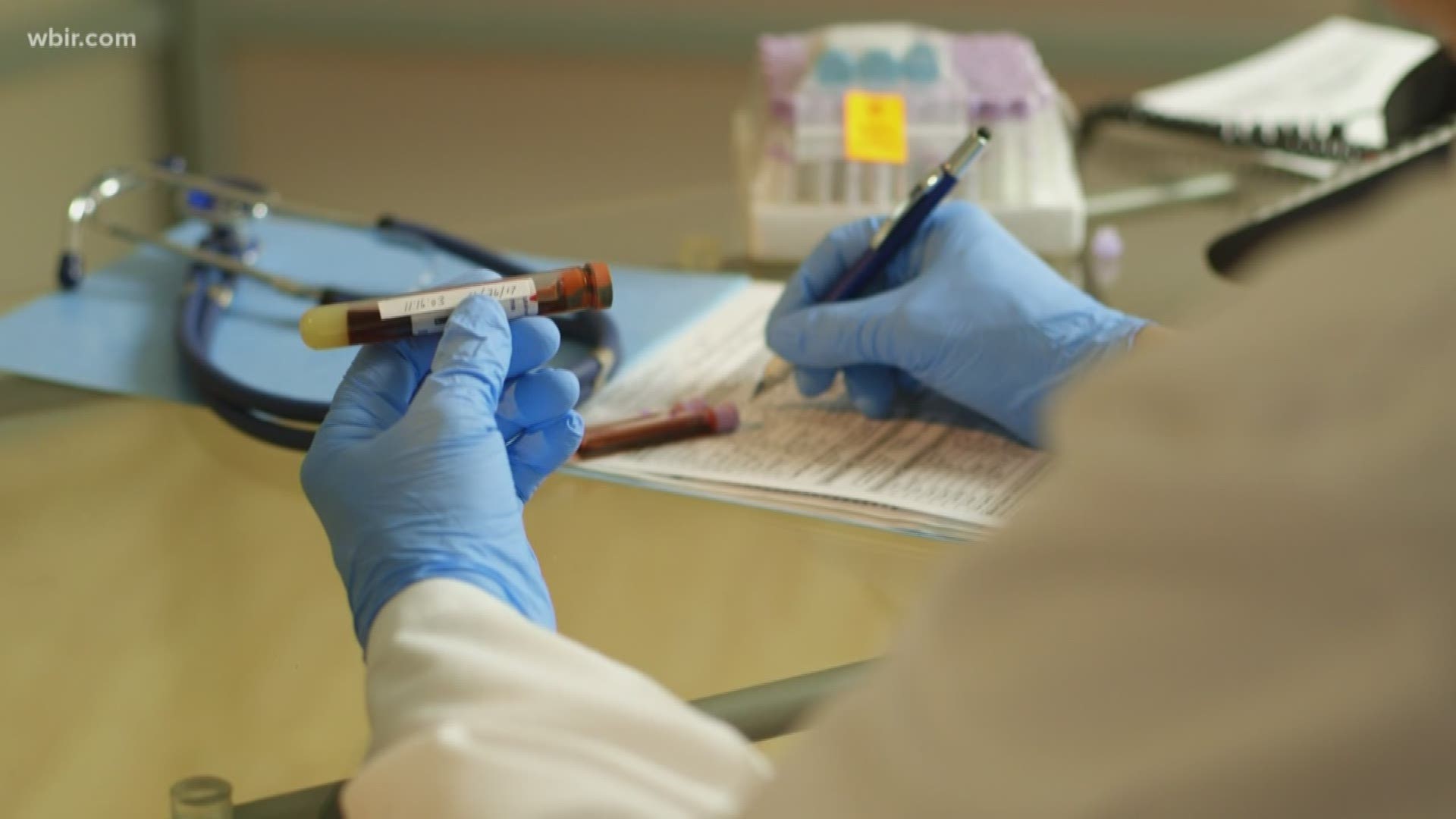In a report released in February, the American Society of Breast Surgeons said all breast cancer patients should be offered genetic testing.
Genetic counselors say genetic testing can benefit not only breast cancer patients, but also their families for generations to come.
Genetic counselor nurse practitioner Imelda Margulies agrees with the recommendation wholeheartedly.
But what is genetic testing? Margulies breaks it all down.
“Genetic testing refers to meeting with someone who does what I do every day where we meet and do a family history, and look at any of the other lifestyles or risk factors of that person’s particular need,” Margulies explained.
Marguiles says most of the time they take a blood sample to do the testing and a lot of people are scared of what the results will reveal.
“People are afraid 'if I carry this mutation, I have cancer,' and that’s not true,” Margulies urged. "It’s really more important to know if you are carrying a genetic mutation, you were born with one copy from your parent, mom, the other parent, dad, so if you carry a mutation of one copy, the other copy is doing the healthy part of keeping the body strong and decreasing the risk of cancer, but let’s say they acquire damage, which is a somatic mutation versus a germ-line mutation.”
She says that being scared shouldn’t hold you back.
“We want to help dispel that and educate people to say if you are at risk these are measures to keep a close eye on things and also do higher risk reduction measures to honor that,” Margulies noted.
The test is more about knowing if you or your family members are at risk for types of cancers, based on heredity or damage to your DNA, and to help monitor that development.
“So if we know that person’s DNA testing reveals a germ-line mutation, then that’s information for their offspring, the children have the 50/50 chance,” Margulies explained.
Just because a person has a genetic mutation, that doesn't mean he or she has a cancer diagnosis.
"That certainly does mean they have a pre-disposed higher risk and we need to offer higher screening and it could be mammograms, it could be in addition to that an MRI screening for breast cancer,” Margulies went on to explain the different cancers that could develop from mutations.
She says overall, knowledge is power.
“If the patient’s willing to undergo to get the blood drawn, it’s knowledge for themselves for risk of future cancers or second cancers as well as knowledge for their family,” Margulies explained.
Margulies also noted the downsides of genetic testing, though she said, in her opinion, there aren't many.
“I feel like there’s not very many downsides," Margulies explained. "For me always, knowledge is power and I think that’s what many people may not have is the knowledge of are they at risk, are they maybe not at risk? Maybe they need to do certain lifestyle choices to help lower the risk. I don’t feel there are many downsides.”
Margulies also said that not all insurances will cover the genetic testing, but at her office, patients have the opportunity to opt-in or opt-out of the testing before any tests on the blood work are done.
“Regardless of any patient who does walk in our door, we do the risk assessment, we do the family tree, we find out who’s at high risk for needing the testing," Margulies explained. "If that patient does want to get the blood work drawn, there’s no penalty for getting the blood drawn at all. Any patient that I draw their blood work, if it costs to pay out of pocket, more than zero dollars, that patient will get a phone call from the lab. If they don’t get the phone call from the laboratory that means that they don’t have to pay a penny.”
About 14-21 days after getting the blood drawn, patients will get their test results. The patient will meet with Imelda and they’ll go over the results.
To learn more and find more information about Margulies' office, visit their website.

